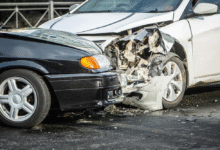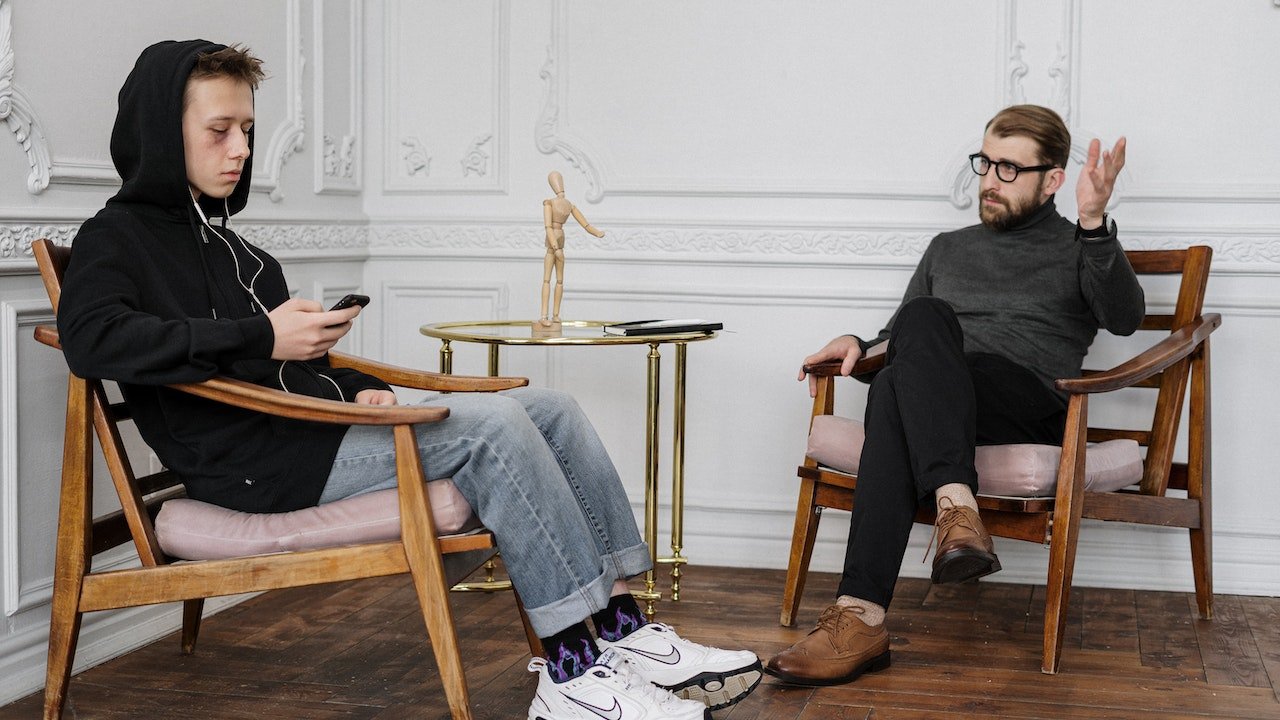Snowstorm Shopping Liable in a Slip and Fall (2023)

Winter storms bring a great deal of excitement, especially if you are looking forward to snow activities such as skiing or snowboarding. However, the same snowstorm can turn out to be a nightmare for those who have to commute, run errands, and go shopping in snowy and icy conditions. Slip and fall accidents are common during winter storms and can result in serious injuries. In this article, we will discuss who is liable for slip-and-fall accidents during snowstorms and what you can do to protect yourself.
What is a Slip and Fall Accident?
A slip and fall accident is a type of personal injury that occurs when someone slips, trips, or falls due to a hazardous condition on someone else’s property. Slip and fall accidents can happen in various settings, such as grocery stores, restaurants, shopping malls, and parking lots. Slip and fall accidents can cause serious injuries, including broken bones, head injuries, and spinal cord injuries.
Common Causes of Slip and Fall Accidents During Snowstorms
During snowstorms, slip and fall accidents can occur due to several reasons, including:
- Ice patches: Snow that has been compacted and melted during the day can freeze overnight, creating ice patches that are difficult to see and can cause slip and fall accidents.
- Uneven surfaces: Snow and ice can cover up uneven surfaces, such as cracks and potholes, making it challenging to navigate and causing slip and fall accidents.
- Lack of maintenance: Property owners have a duty to maintain their premises and remove snow and ice to prevent slip and fall accidents. Failure to do so can result in liability for slip and fall accidents during snowstorms.
- Inadequate lighting: Poor lighting during snowstorms can make it challenging to see hazardous conditions on the ground, leading to slip and fall accidents.
Who is Liable for a Slip and Fall Accident During a Snowstorm?
Determining liability for a slip and fall accident during a snowstorm can be challenging. Property owners have a duty to maintain their premises and keep them safe for visitors. However, property owners are not expected to remove all snow and ice during a snowstorm. Instead, they are required to take reasonable steps to maintain their premises and keep them safe.
Premises Liability Laws
Premises liability laws vary from state to state. In general, property owners are responsible for keeping their premises safe for visitors. This includes removing snow and ice during snowstorms. If a property owner fails to maintain their premises and a visitor is injured, they can be held liable for the visitor’s injuries.
Read More: Slip and Falls One of the Most Avoidable Injuries (2023)
Defenses Against Premises Liability Claims
Property owners can use several defenses against premises liability claims, including:
- Open and Obvious: Property owners can argue that the hazardous condition was open and obvious, and the visitor should have been aware of it.
- Contributory Negligence: Property owners can argue that the visitor contributed to their own injuries by not paying attention or engaging in risky behavior.
Steps to Take After a Slip and Fall Accident During a Snowstorm
If you are involved in a slip and fall accident during a snowstorm, it’s crucial to take the following steps:
- Seek medical attention: Your health and safety should be your top priority. If you are injured, seek medical attention immediately and follow all recommended treatment plans.
- Document the scene: Take photos or videos of the area where the accident occurred, including the hazardous condition, such as snow or ice. Also, collect contact information from any witnesses who saw the accident.
- Report the incident: Notify the property owner or manager of the accident as soon as possible and request a written incident report.
- Keep records: Keep all records related to the accident, including medical bills, receipts for any expenses incurred, and communication with the property owner or their insurance company.
How to Prove Negligence in a Slip and Fall Case
To prove negligence in a slip and fall case during a snowstorm, you must establish the following elements:
- Duty of care: Show that the property owner had a duty to maintain their premises and keep them safe for visitors during a snowstorm.
- Breach of duty: Demonstrate that the property owner failed to take reasonable steps to remove or mitigate hazardous conditions, such as snow or ice, during the snowstorm.
- Causation: Prove that the property owner’s breach of duty directly caused your slip and fall accident and resulting injuries.
- Damages: Show that you suffered damages, such as medical expenses, lost wages, and pain and suffering, as a result of the slip and fall accident.
Proving negligence can be complex, and it’s recommended to seek the assistance of a qualified personal injury lawyer to navigate the legal process.
Compensation for Slip and Fall Injuries
If you are injured in a slip and fall accident during a snowstorm, you may be entitled to compensation for your damages. Compensation may include:
- Medical expenses: Coverage for medical bills, hospitalization, surgeries, medications, and rehabilitation.
- Lost wages: Reimbursement for wages lost due to missed work during recovery.
- Pain and suffering: Compensation for physical and emotional pain and suffering caused by the accident.
- Disability or disfigurement: Compensation for long-term disabilities or disfigurement resulting from the slip and fall accident.
The amount of compensation will vary depending on the severity of the injuries and the impact on your life. A personal injury lawyer can help you determine the fair value of your claim and negotiate with the insurance company on your behalf.
Read More: FL. Power Plant in Spotlight After Several Accidents (2023)
Conclusion
In conclusion, slip and fall accidents during snowstorms can result in serious injuries and legal liability for property owners. While property owners have a duty to maintain their premises and keep them safe for visitors, visitors also have a responsibility to take reasonable steps to protect themselves from hazardous conditions.
If you are involved in a slip and fall accident during a snowstorm, seek medical attention immediately, document the scene, report the incident to the property owner, and keep records of all related expenses. To prove negligence and receive compensation for your damages, it’s recommended to seek the assistance of a qualified personal injury lawyer.
By taking preventative measures and being aware of your surroundings, you can reduce the risk of slip and fall accidents during snowstorms and stay safe during the winter months.
FAQs
Who is liable in a slip and fall accident during a snowstorm?
Answer: Property owners may be liable for slip and fall accidents during a snowstorm if they failed to take reasonable steps to remove or mitigate hazardous conditions.
What is contributory negligence?
Answer: Contributory negligence is a defense that property owners can use to argue that the visitor contributed to their own injuries by not paying attention or engaging in risky behavior.
What compensation can I receive for a slip and fall accident during a snowstorm?
Answer: Compensation may include medical expenses, lost wages, pain and suffering, disability or disfigurement, and more depending on the severity of the injuries and impact on your life.
How can I protect myself from slip and fall accidents during snowstorms?
Answer: Wear appropriate footwear, walk slowly and cautiously, use handrails, stay on cleared paths, be aware of your surroundings, and plan ahead for potential snowstorms.
Should I seek the assistance of a personal injury lawyer after a slip and fall accident during a snowstorm?
Answer: It’s recommended to seek the assistance of a qualified personal injury lawyer to navigate the complex legal process and receive fair compensation for your damages.





One Comment